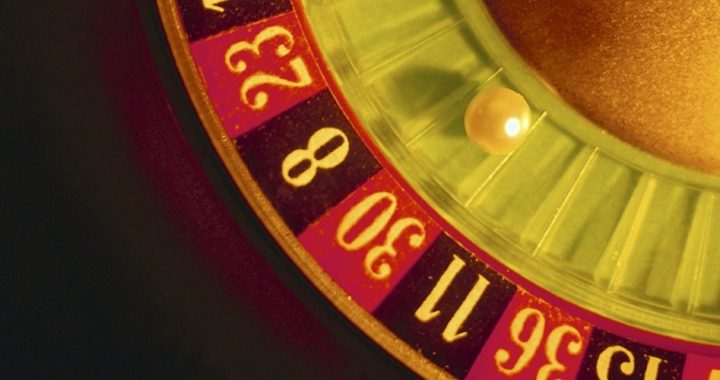
Senate Majority Leader Harry Reid of Nevada is trying to get Congress, after the November elections, to pass into law language that would preempt from the states the right to regulate Internet gambling and would instead provide for federal regulation of this activity. The National Conference of State Legislatures (NCSL), a bipartisan association that works to promote the rights of state governments and to provide a voluntary framework for the development of policy and research for state laws, is unhappy with what Reid is doing.
Jim Ward, a committee director at the NCSL, said: “It’s frustrating because they are overseeing a successful stewardship of the gaming industry. It’s not clear why any federal intervention is necessary. … It’s a sensitive topic for the states any time you talk about preemption.”
The formal statement of the NCSL begins: “The National Conference of State Legislatures (NCSL) believes the federal government must respect the sovereignty of states to allow or to prohibit Internet gambling by their residents.” It continues: “NCSL requests Congress consider the perspective of the states as it examines this issue and asks that it involve state legislators in any federal efforts that seek to reform the regulation of online gaming.”
Reid tried the same tactic after the 2010 midterm elections, when in December of that year, during the lame-duck Congress, he introduced a measure that would have allowed federal officials to approve various sorts of Internet gambling poker games, which are often domiciled in places such as the Isle of Man, to operate in the United States. Las Vegas casinos, in particular, would expect to benefit.
The federal legalization would effectively take authority away from state governments because under the Supremacy Clause of the Constitution, when states and the federal government both exercise authority in a legislative area, the federal government’s rights supersede those of state governments. Reid explained his reasoning at the time:
Under the status quo, Internet poker is played by millions of Americans every day in an essentially unregulated environment. The legislation I am working on would get our collective heads out of the sand and create a strict regulatory environment to protect U.S. consumers, prevent underage gambling and respect the decisions of states that don’t allow gambling.
Reid failed two years ago in this attempt, but he is trying again. His aides maintain that the proposal is not stepping on the toes of state governments. Kristen Orthman from Reid’s office stated: “We have consulted extensively with a variety of stakeholders about the bill — including many states. We have indicated to all that our door is open to continuing conversations.”
In 2011, governors from both political parties, such as Democrat Maryland Governor Martin O’Malley and Republican Idaho Governor Butch Otter, wrote to members of Congress, saying that state governments should be able to regulate their own gambling and expressing concern that state-run lotteries, which have become an important sort of revenue for a number of state activities, could be affected. The National Governors Association has been just as concerned as the NCSL about what Reid is trying to so. The NGA informed members of Congress by letter earlier this year that gambling has “historically been regulated by the states.” New Jersey and California are both going ahead with plans to legalize online gambling, and are counting on revenue from that to help with budget shortfalls.
Another organization, the North American Association of State & Provincial Lotteries (NASPL), whose members include Canadian provinces as well as American states, has warned of potential harm from Reid’s proposal. Margaret DeFrancisco, chair of the Government Relations Committee of that organization, states:
It’s all money that the states absolutely rely on…. We don’t want to be restricted by the federal government telling us what gaming policy should be in the states…. The summary that we have seen is not terribly friendly to lotteries.… It’s very restrictive. We don’t want and we don’t need any federal legislation concerning lotteries. Period.
She also notes that the proposal seems intended just to help Reid’s home state: “This seems to be something just for Nevada. But for lotteries, we represent almost all of the country.”
Others have also noted that gambling and casino interests in Nevada have played a major role in fundraising for Reid. Caesars Entertainment and MGM Resorts International gave $375,000 to an outside group supporting Reid in November 2010.
Some opponents of what Reid is trying to do object to the federal government raising revenue through gambling revenues. Congressman Spencer Bachus of Alabama wrote to Reid stating: “Congress should not take advantage of the young, the weak, and the vulnerable in the name of new revenues to cover more government spending.”
Conservative groups such as Focus on the Family have warned against making gambling even more accessible and giving it the blessings of the federal government. This position recognizes that activities which in America have long been described as “vice” — gambling, drinking, prostitution, and the like — have been within the purview of state government. Reid’s home state of Nevada, for example, has some places that allow legalized prostitution. Neighboring Utah, reflecting Mormon moral values that Reid, as a Mormon, presumably shares, has historically been the most restrictive regarding the sale of alcohol.
When Utah and other socially conservative states had restrictions on alcohol that were very similar to federal Prohibition, the result was not the rise of Al Capone and other crime lords. People who wanted a drink could cross a state line, or if people wanted to live where wine flowed freely, they could move. That option does not exist when the federal government preempts an area of regulation.
Even more troubling may be the fact that the federal government has almost never relinquished either power or money when it has moved into an area of government.
Finally, do we really want to reduce the federal deficit by revenues from vice?



